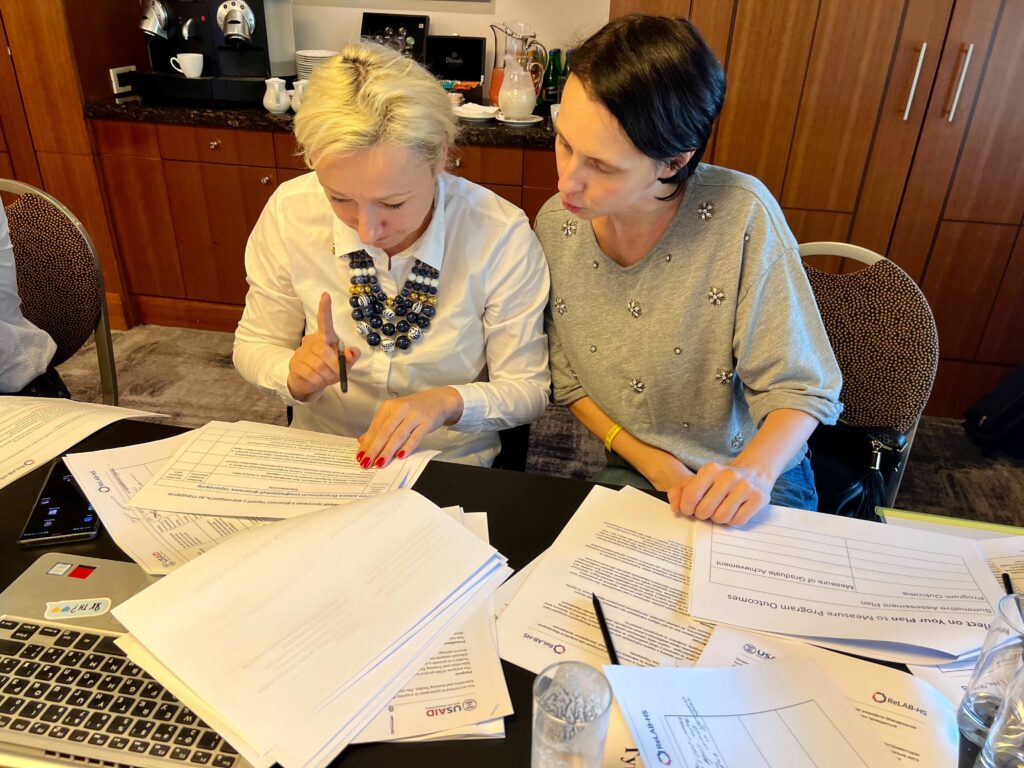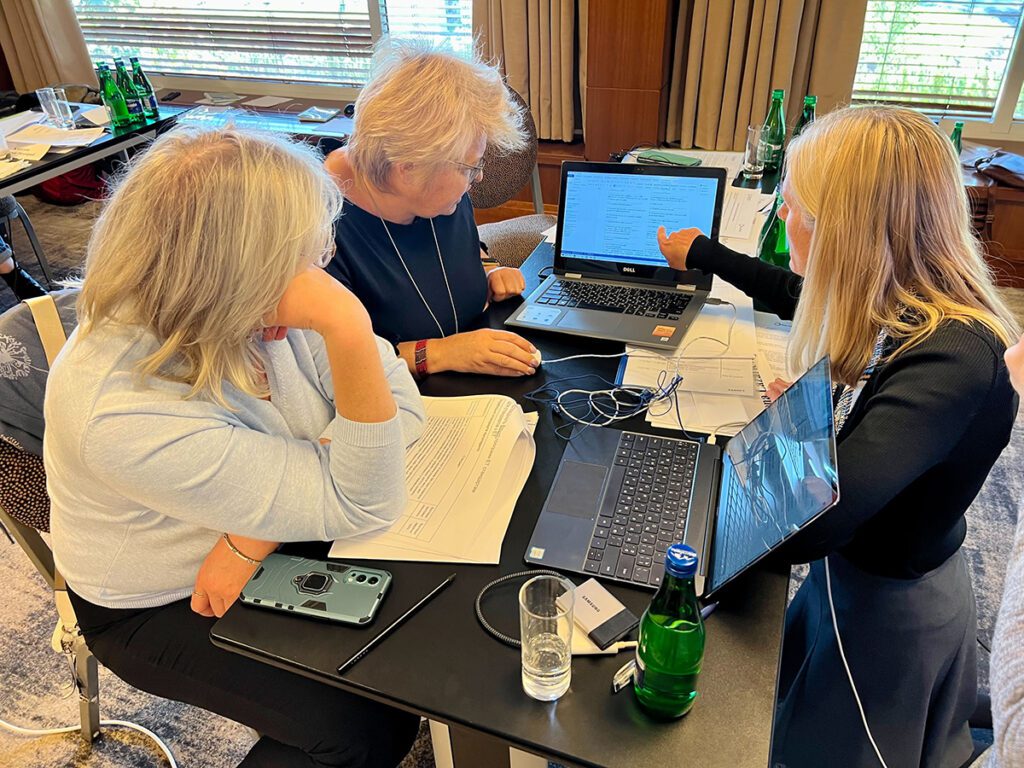
By Rachael Lowe for ReLAB-HS
Despite the current conflict in Ukraine, rehabilitation leaders in the country are doing all that they can to forward workforce development initiatives to strengthen rehabilitation services. Learning, Acting, and Building for Rehabilitation in Health Systems (ReLAB-HS) recently held a two-day workshop in Poland to facilitate collaboration towards overcoming workforce challenges in Ukraine.
ReLAB-HS is responding to identified global workforce development needs to strengthen the rehabilitation workforce, which is key to functioning health systems. An international rehabilitation education and training toolkit (IRETT) that includes courses and resources is being developed to support education and training initiatives. The tools will be globally relevant so that they can be adopted by anyone and will be accompanied by guidance to facilitate adaptation to any specific local context. ReLAB-HS is starting to implement needs-based workforce development activities targeting regulation, curricula strengthening, clinical skills training, and advocacy in multiple countries, including Ukraine, with a focus on creating opportunities for sustainability and scale.
 Participants working through the program reflection tool of the IRETT at a recent workshop in Poland. Photo courtesy Physiopedia
Participants working through the program reflection tool of the IRETT at a recent workshop in Poland. Photo courtesy Physiopedia
Historic and recent changes to rehabilitation-related legislation in Ukraine have presented many immediate challenges for stakeholders that are already delivering education and working towards professional regulation. The workshop in Poland—led by ReLAB-HS partner Physiopedia—presented a unique opportunity to implement initial versions of the IRETT tools that support these two key themes for workforce development.
Day one discussions focused on the challenging regulation matters, and an action plan was created for a working group to forward activities towards professional regulation. On day two, the program reflection tool was used to explore the strengthening of academic curricula towards approval with international professional associations. One participant concluded that the day had “changed [her] vision for education in Ukraine,” and another reported that the event had “really given [her] structure to technically support education in Ukraine.”
This has changed my vision for education in Ukraine
In attendance were representatives from four universities, both physical therapy member organizations, and the Ministry of Education and Science who had all travelled from Ukraine. Members of the Strengthening Rehabilitation Services in Health Systems (SRSHS) project, led by Momentum Wheels for Humanity, were also present to facilitate coordination between the two USAID-funded projects that are working in Ukraine. Attendees online included the Ministry of Health, the occupational therapy organization and the ReLAB-HS Country Coordinator.
To provide maximum access for all participants, a complex arrangement of laptops, microphones, and headphones combined with online interpretation through a Zoom meeting were used to allow English and Ukrainian speaking participants to speak in their own language and be understood by all. Both remote meeting participants and participants in the room were able to access this live translation, which facilitated full understanding and participation.
As a follow up to this meeting, an online community of practice will be initiated to take the regulation action plan forward and to continue collaborative efforts towards curricula strengthening. ReLAB-HS, through the Physiopedia team that led this workshop, expects to again work with this group of individuals in Ukraine to strengthen the rehabilitation workforce.
ReLAB-HS is made possible by the generous support of the American people through the United States Agency for International Development.